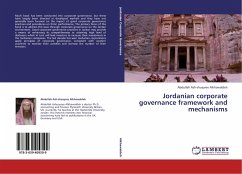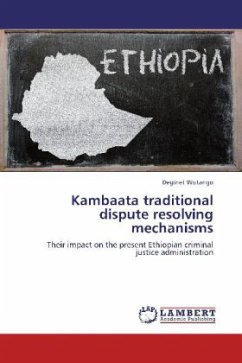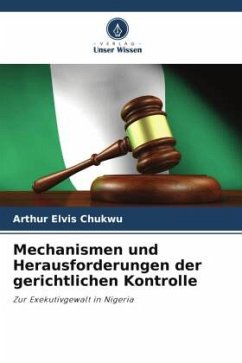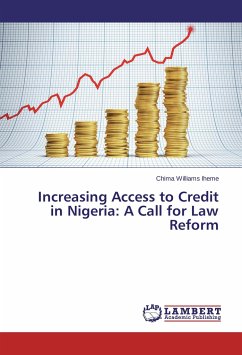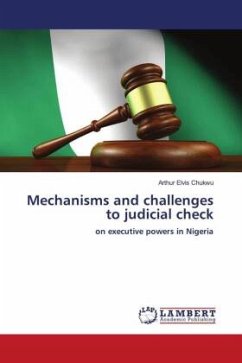
Mechanisms and challenges to judicial check
on executive powers in Nigeria
Versandkostenfrei!
Versandfertig in 6-10 Tagen
56,99 €
inkl. MwSt.

PAYBACK Punkte
28 °P sammeln!
The main aim of this work is to exposed the challenges facing the judiciary in the check of executive powers. The research adopted the doctrinal research method and utilised domestic and international statutes, legislation and case law as the primary sources, while opinions of eminent authors expressed in text books, journals/Articles, seminar papers, newspapers, and internet sources were used as secondary sources. The research findings revealed, among other things, that the power of the court, which lies in the enforcement of its judgment, has been threatened both by the provisions of the law...
The main aim of this work is to exposed the challenges facing the judiciary in the check of executive powers. The research adopted the doctrinal research method and utilised domestic and international statutes, legislation and case law as the primary sources, while opinions of eminent authors expressed in text books, journals/Articles, seminar papers, newspapers, and internet sources were used as secondary sources. The research findings revealed, among other things, that the power of the court, which lies in the enforcement of its judgment, has been threatened both by the provisions of the law and attitude of the executive. In the light of the foregoing, the research recommended, among others things, that the judiciary should have a body responsible for enforcing and executing court judgments. The research concluded that it is through this way that the judiciary will divest itself from dependency on the executive for enforcement of its judgment.




